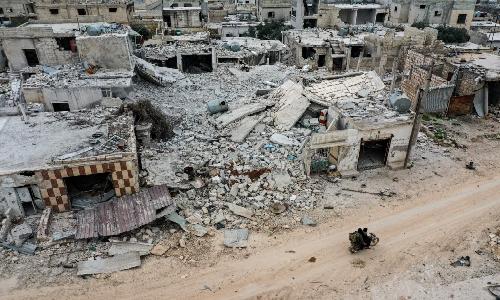Le ministre de l’éducation nationale et de la recherche scientifique, François Havyarimana a rencontré à Gitega, jeudi 02 décembre 2021 dans une réunion d’orientation et d’échanges, les hauts cadres et cadres du ministère en charge de l’éducation œuvrant dans le secteur de l’enseignement supérieur dont les responsables des institutions d’enseignement supérieur.
Dans son discours d’ouverture, le ministre François Havyarimana a précisé que la rencontre constitue un signe éloquent de la volonté du ministère de l’éducation nationale et de la recherche scientifique et des institutions d’enseignement supérieur en particulier, d’asseoir la bonne gouvernance. Celle-ci étant basée notamment sur la collaboration dont l’objectif primordial est de renforcer la qualité de l’enseignement au sein des institutions d’enseignement supérieur respectives, a-t-il poursuivi.
Selon le ministre, la rencontre s’inscrit dans un processus d’accompagnement des responsables des établissements d’enseignement supérieur dans la mise en œuvre de la réforme BMD mais également de la volonté du gouvernement burundais en matière de formation à travers le PND pour la période de 2018 à 2027.
Et d’ajouter que l’approche préconisée actuellement par le gouvernement burundais en matière de formation, consiste en la création des institutions d’enseignement supérieur capables de dispenser une formation de qualité dans des filières susceptibles de booster le développement socio-économique de notre pays. L’objectif étant de permettre de mieux répondre aux besoins de la population et du pays grâce à un personnel qualifié, compétent mais aussi de réduire le chômage des jeunes diplômés, a ajouté le ministre en charge de l’éducation nationale.
François Havyarimana a indiqué qu’à travers les descentes et les différentes évaluations institutionnelles de l’état de mise en œuvre de la réforme BMD effectuées, le constat a été qu’il y a encore des irrégularités au sein des institutions d’enseignement supérieur. Il a cité notamment le non-respect des conditions d’accès de nouveaux étudiants inscrits dans les différentes filières, le manque de statistiques relatives aux étudiants, le non respect du calendrier académique etc.
Pour cela, le ministre en charge de l’éducation nationale a appelé les responsables des institutions d’enseignement supérieur à redoubler d’efforts pour que les irrégularités observées soient corrigées et réduites au strict minimum si pas éradiquer pour l’intérêt supérieur de l’assurance qualité dans l’enseignement supérieur burundais. Pour y arriver, il demande le respect du cadre légal.
Le ministre Havyarimana a expliqué que le gouvernement du Burundi encourage la promotion d’un enseignement supérieur de qualité adaptée aux besoins réels du pays et de la sous région. La priorité est selon lui accordée aux filières scientifiques technologiques mais aussi à la recherche innovante pour le développement du pays et le bien-être de la population burundaise.
Le ministre de l’éducation nationale et de la recherche scientifique a encouragé vivement l’ouverture des filières techniques et professionnelles tant au niveau de l’enseignement post fondamental qu’à l’université.
Dans l’objectif d’harmoniser les conditions requises pour avancer de grade dans les établissements d’enseignement supérieur, le ministre François Havyarimana a précisé que le ministère de l’éducation nationale et de la recherche scientifique va bientôt mettre en place un plan d’ordonnance portant guide et critères minima d’avancement de grade conformément aux propositions de la commission nationale de la science, les technologies et l’innovation. Il demande alors aux responsables des établissements d’enseignement supérieur de s’y préparer conséquemment. La réunion a vu la participation du représentant de l’ambassadeur de l’UE au Burundi.
Source: Radio Television Burundi

